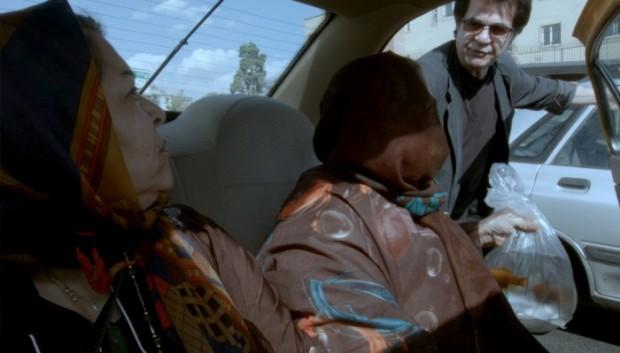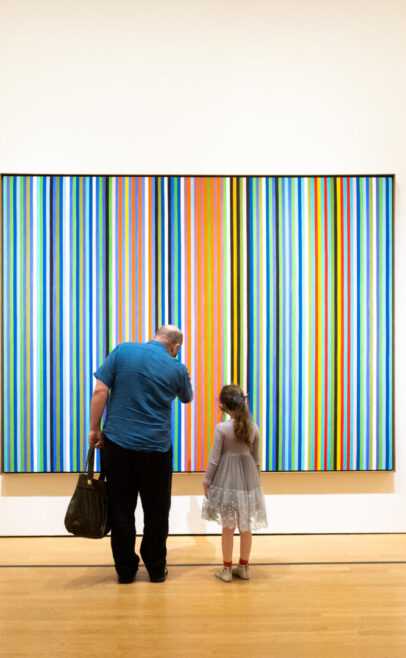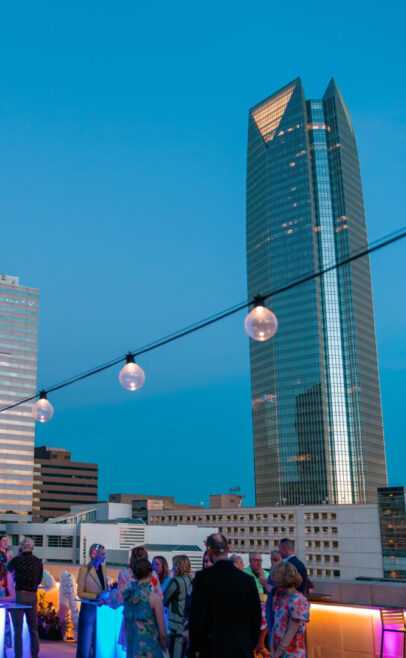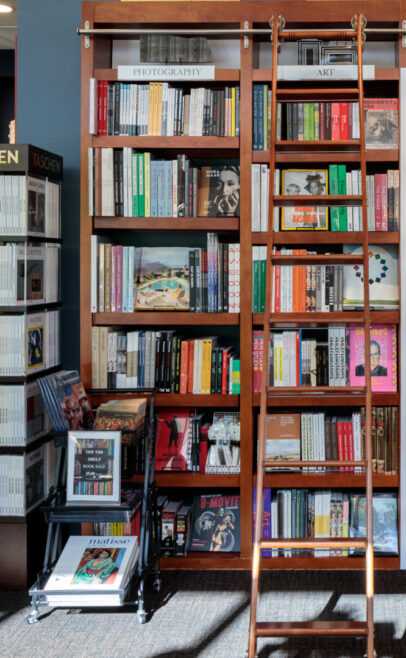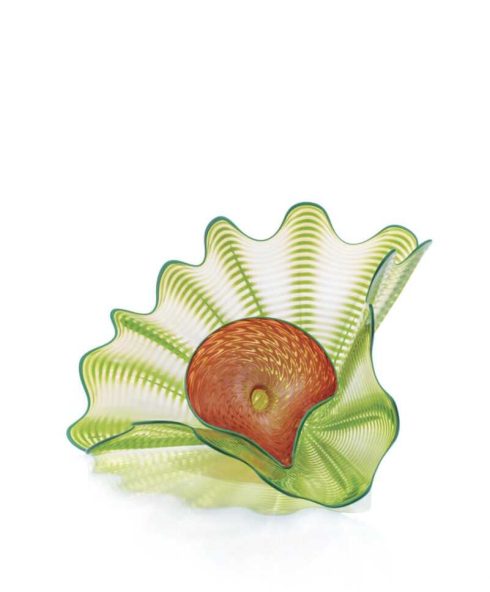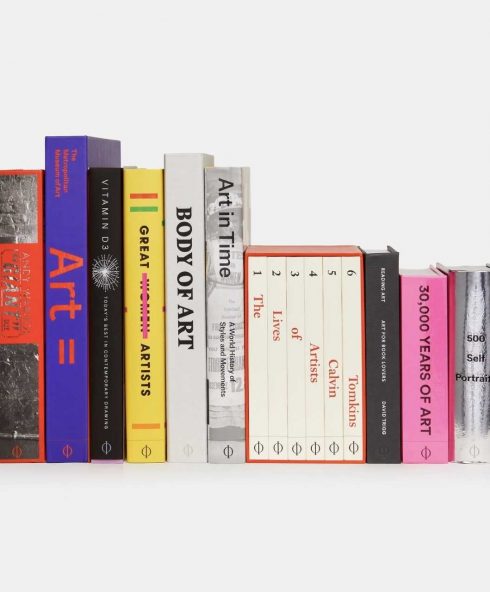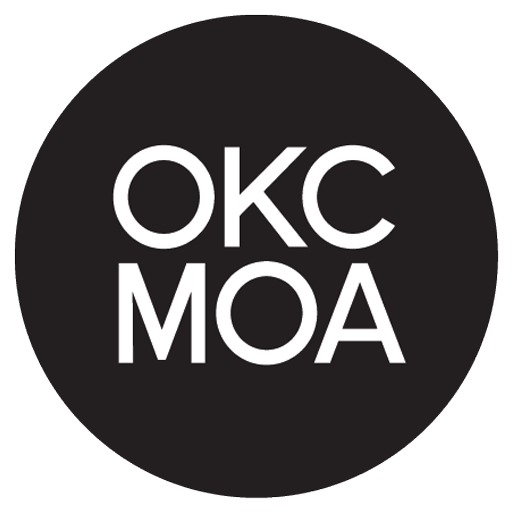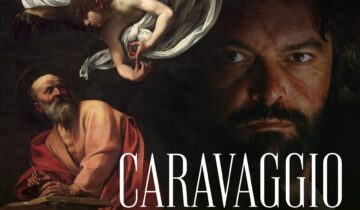One of the most significant developments in world cinema during the past half decade has been director Jafar Panahi’s response to his jail term and twenty-year filmmaking ban, ostensibly for making films that opposed the Iranian government. In This Is Not a Film (2011), Closed Curtain (2013) and now the outstanding Taxi (2015), certain not only to be one of the highlights of this year’s Berlinale, but also for 2015 more generally, Panahi has had to create a form by which he could continue to produce art cinema of the highest order, while maintaining some small measure of deniability. Taxi answers this challenge – a challenge which has managed to elevate, perhaps even considerably, the work of an artist who was already among the dozen or so most consistent living filmmakers before the ban – by introducing the prospect that the front-seat digital camera is nothing more than an anti-security device, as one of Panahi’s first passengers notes. As always, though, Panahi hides his artistic actions in plain sight, allowing another lawyer friend to insist that she knows what he’s up to. They also briefly discuss the voice of his interrogator in his more forthright observations on his treatment by Iranian authorities. Surely only his global fame is saving Panahi as he presses further in his defiance of his sentence with each successive work.
Structured around a series of passengers who, in certain instances, are identified by other passengers as actors, Taxi continues the director’s exploration of the space between fiction and documentary, a field that traces its source to Panahi’s master Abbas Kiarostami, and the latter’s Close Up (1990), which Taxi references along with 2002’s Ten; this is the director’s most Kiarostamian film since at least Offside (2006). However, this exploration of a conceptual in-between accumulates a great deal more meaning for Panahi, who once again is forced to navigate what it means to make ‘films,’ as a consequence of his arrest. His conceptual indeterminacy, in other words, is an act of legal self-preservation (beyond being a device for ontological exploration.)
Taxi also continues the director’s career-spanning emphasis on off-camera space, again as a product of his debt to Kiarostami, which in this case finds expression in characters who can be heard (or even sensed) but not seen, and conversations that occur beyond the mic of the camera (from a visual position inside Panahi’s stopped taxi cab, be it on the dashboard or from his younger niece’s camera). Panahi also refreshes one of his mentor’s greatest scenes, the famed closed passage of Through the Olive Trees (1994), a film for on which Panahi served as assistant director: at a spring, in which a pivotal humanistic gesture is about to occur, Panahi and his niece outside of the camera’s field of vision, thus leaving it to the spectator to finish the scene. Of course, Panahi finishes this same scene in a very different manner consequently, one that lacks the humanistic redemption that the film’s comic narrative is leading us towards.
It should be noted, moreover, that the post-Kiarostami unfinished humanistic cinema is, in this case, re-purposed as a challenge to “distributable” Iranian cinema, which does not allow for the absence of moralistic redemption, let alone moral turpitude. Indeed, Taxi’s discussion of “undistributable” cinema both makes for sharply on-point comedic banter between the director and his niece – the filmmaker’s latest is a very funny, crowd-pleasing work to base these things on the response of the paying festival public – and also for a definition of the sort of art film that Panahi is creating with Taxi, one that almost point-by-point inverts official Iranian cinema. For the director’s latest, he does not stop with an acknowledgement, however craftily, that he is making a film, or even that every aspect is under his control (as in the great Closed Curtain, my favorite commercial release of 2014), but rather insists on how his work, one that by the letter of the law should not exist, differs from other Iranian films.
Taxi, finally, is also a summary of Panahi’s pre-ban corpus, providing rather direct references to all or nearly all is his pre-2009 body-of-work (on a first, early morning viewing, I noticed references to all of his films except for The Circle). This too can be understood as a modernist-coded act of resistance, as a means of reminding his viewer of a body-of-work that not only lives on, but is considerably deepened by the masterful Taxi. By banning his works, Iran has created a cinema that is all about the director’s life; the political has become personal, and in the process it has become all the more so.
In Werner Herzog’s fictional latest, Queen of the Desert (2015), we have the newest example of a career arc moving, almost inexorably one fears, in the opposite direction. It is as though, as with The Bad Lieutenant: Port of Call New Orleans (2009), Herzog no longer has any interest or patience in making conventionally good films, but is instead enthralled by the thrills of the awful and of bad taste. Such is a life totally under the spell of irony, one supposes. Where TBL: POCNO had Nicholas Cage with whom to conspire in this project, Herzog has found an unholy collaborator in James Franco, who delivers his absurdly on-the-nose dialogue with a studied deafness of effect. Alas, the specious fun does not last as the film’s arid female Lawrence of Arabia, starring Nicole Kidman, finds a suitably bloated and plodding second-half story line to match its desert archetype. Queen of the Desert, in other words, goes from bad to boring, which almost might be a synonym, in this instance at least, for worse. Queen of the Desert will definitely contend for this year’s worst in competition.
Still early in the eleven day fest, but pushing past my own midpoint, Latin American cinema is beginning to emerge as one of the 65th festival’s more distinctive concentrations. The first of the titles to premiere, Jayro Bustamante’s Ixcanul (2015), from historical world cinema non-player Guatemala, recommends itself foremost as an object of cultural access: Bustamante, raised in the film’s Kaqchiquel Maya region, insistently depicts the daily, female-centered rituals and superstitions of the film’s indigenous, non-Spanish speaking peasant populations. Ixcanul especially focuses on the family’s teenage only daughter as she works at home with her mother, and contends with a boyfriend who dreams of escaping the region’s extreme poverty, on the other side of the nearby volcano (and ultimately in America). Well made and admirably performed, Ixcanul developed out of workshops that director held with the local population, in which he sought the stories that give his work its exceedingly authentic textures. Adhering very closely otherwise to that immediately recognizable idiom of third-world realism, Ixcanul also adds high melodrama, which is equally familiar to its greater Latin American context. Bustamante, in the end, does not attempt to reinvent cinema here, so much as he seeks and succeeds in introducing daily life and beliefs – from the mouths of the locals, so to speak – in a corner of the planet unmolested by globalism. With Ixcanul, Bustamante may just have laid claim to the role of Guatemala’s resident art house voice.
